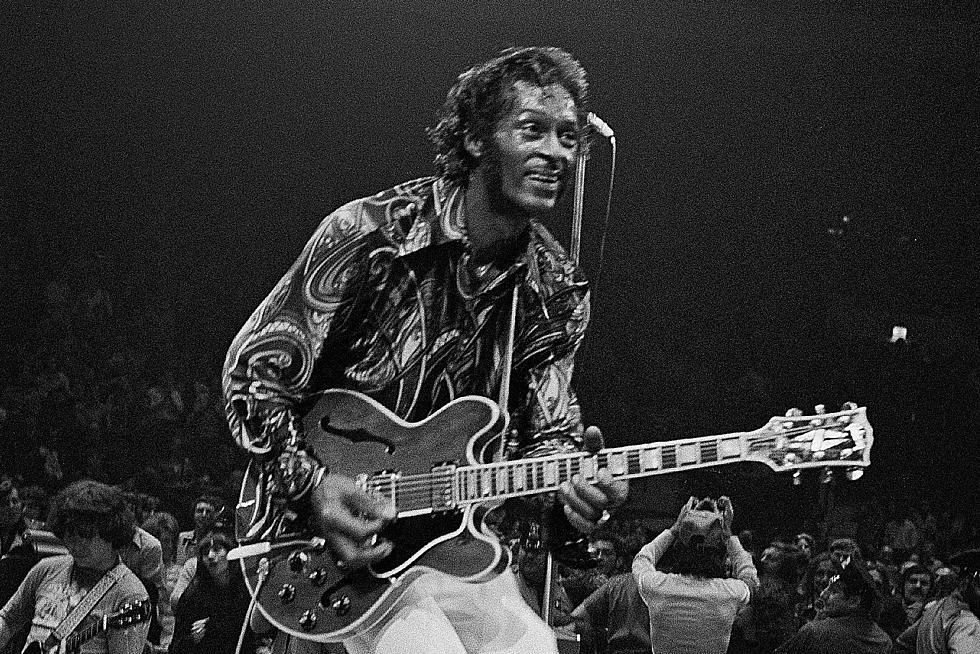
Chuck Berry, ‘Chuck': Album Review
When Chuck Berry died in March, he had already announced the release of his first album in 38 years.
It's not like he hasn't kept busy the past four decades. He performed live quite a bit, especially in his hometown of St. Louis, until declining health finally pushed the rock 'n' roll pioneer, who was 90 when he died, off the stage for good. He also had recorded and stockpiled material from 1991 through 2014, the year he gave his last performance. Ten of those songs make up Chuck, a fitting conclusion to the influential career of one of rock's great architects.
Like other late-life albums by artists who got their starts around the same time as Berry, Chuck isn't so much a valuable addition to his catalog as it is tribute to and reminder of his achievements. None of the songs comes close to "Maybellene" or "Johnny B. Goode"; there's not even anything as good as the title track to 1973's Bio album here. But as the final project from someone who was there at the dawn of rock 'n' roll, it's a fond and nostalgic look back sprinkled with references to his storied past.
The best cuts are the ones with the clearest connections to his long line of groundbreaking '50s and '60s songs. Opener "Wonderful Woman" borrows its melody from "Back in the U.S.A." and a handful of other classics, and features the sort of slinging guitar line that came naturally to Berry. "Big Boys" is an autobiographical glance at his youth, complete with a roaring riff that echoes the ones that shaped generations of guitar players. And the slight but swinging "Lady B. Goode" gender swaps "Johnny B. Goode" to charming effect.
Aided by his longtime backing group -- as well as special guests Gary Clark, Jr., Tom Morello and Nathaniel Rateliff -- Berry rarely yields the spotlight for his last bow. Make no mistake -- Chuck is his show, and he charges through its 35 minutes with the same command and authority that drove his string of hits back in the day. His voice is worn and weathered at times, but the cracks slip easily into the songs' foundations.
The album's final third reveals some of the thin threads and decades of sessions that hold it all together. "Jamaica Moon" basically rewrites 1956's infinitely better "Havana Moon," and the nearly four-minute "Dutchman" is a spoken-word piece recited over a laborious blues shuffle.
Chuck is like that -- part backward glance, part shameless recast and part victory lap. When it comes to life, it's thanks to Berry's eternal enthusiasm for the music. It doesn't face down mortality like two other final albums by recently departed artists, David Bowie's Blackstar and Leonard Cohen's You Want It Darker. But it's not supposed to. It's a celebration of rock 'n' roll music -- something Berry did better than almost anyone else.
Masterpieces: The Very Best Albums From More Than 100 Classic Rock Acts
More From Ultimate Classic Rock









